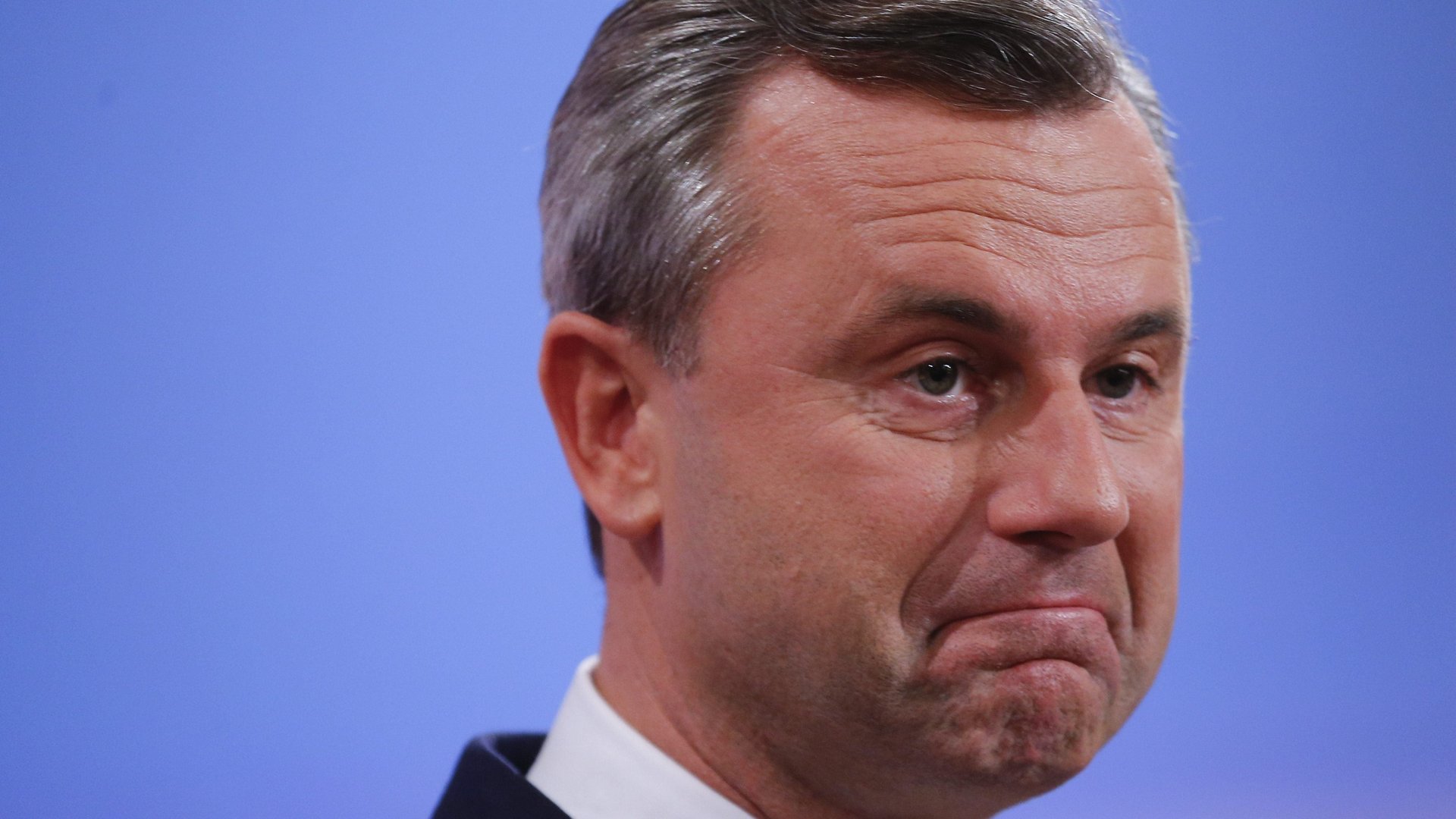The EU may get a far-right president, but it won’t be Austria’s Norbert Hofer
Far-right candidate Norbert Hofer conceded defeat in Austria’s presidential race on Dec. 4, as left-leaning rival Alexander Van der Bellen emerged with a lead of 53% to 46%.


Far-right candidate Norbert Hofer conceded defeat in Austria’s presidential race on Dec. 4, as left-leaning rival Alexander Van der Bellen emerged with a lead of 53% to 46%.
While Austria’s presidential post is mainly ceremonial—the chancellor and the cabinet wield more day-to-day power—the country is one of several in the European Union facing growing far-right and anti-immigration sentiments, and their attendant political parties. France, the Netherlands, and Germany all face elections with similar stakes next year.
“The bottom line is it didn’t quite work out,” Herbert Kickl, chief strategist of Hofer’s Freedom Party, told Austrian media. “In this case the establishment—which pitched in once again to block, to stonewall, and to prevent renewal—has won.”
The results were surprising, as the candidates were considered neck and neck. The election itself was a court-mandated redo after fraud allegations surrounding a run-off in May. Van der Bellen won that time by 31,000 votes, or less than 1%.
On Facebook, Hofer said he was “incredibly sad,” but congratulated Van der Bellen and called on “all Austrians to stick together and work together.” (Hofer once said Islam “had no place” in the country.)
Austria has said it took in 90,000 asylum-seekers last year, and put a cap of 37,500 applications in place for 2016. In April, the country passed a controversial law allowing the government to stop accepting migrants if it declares a “state of emergency.”